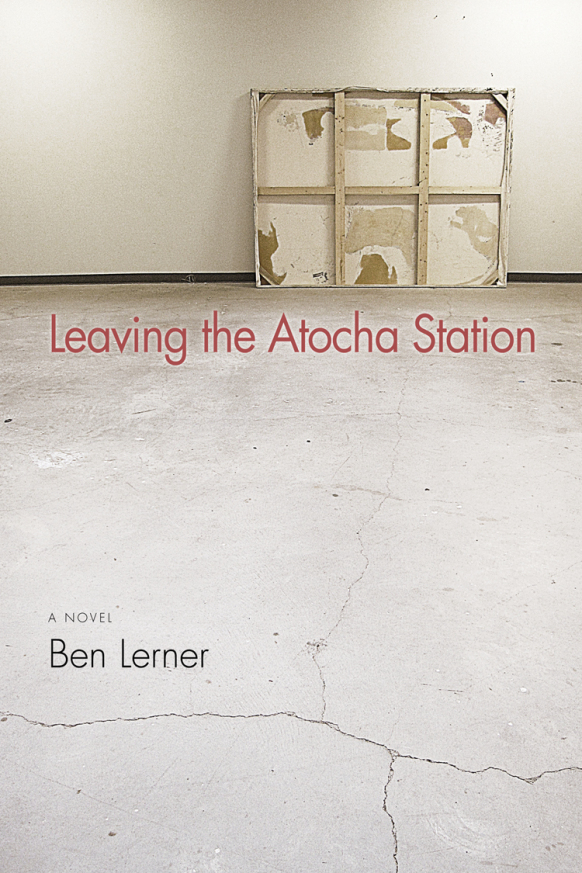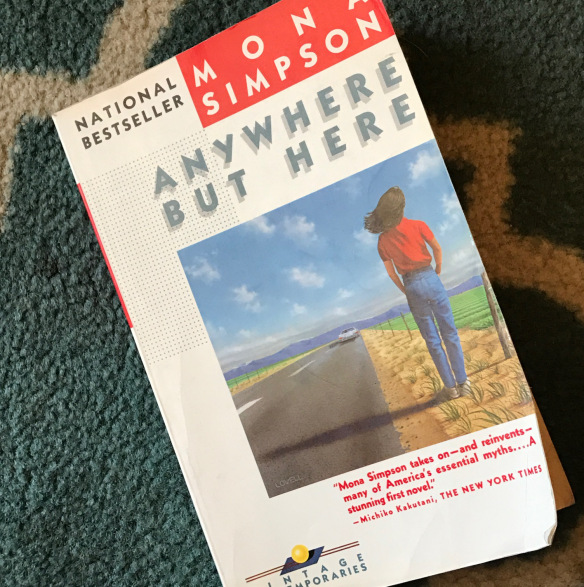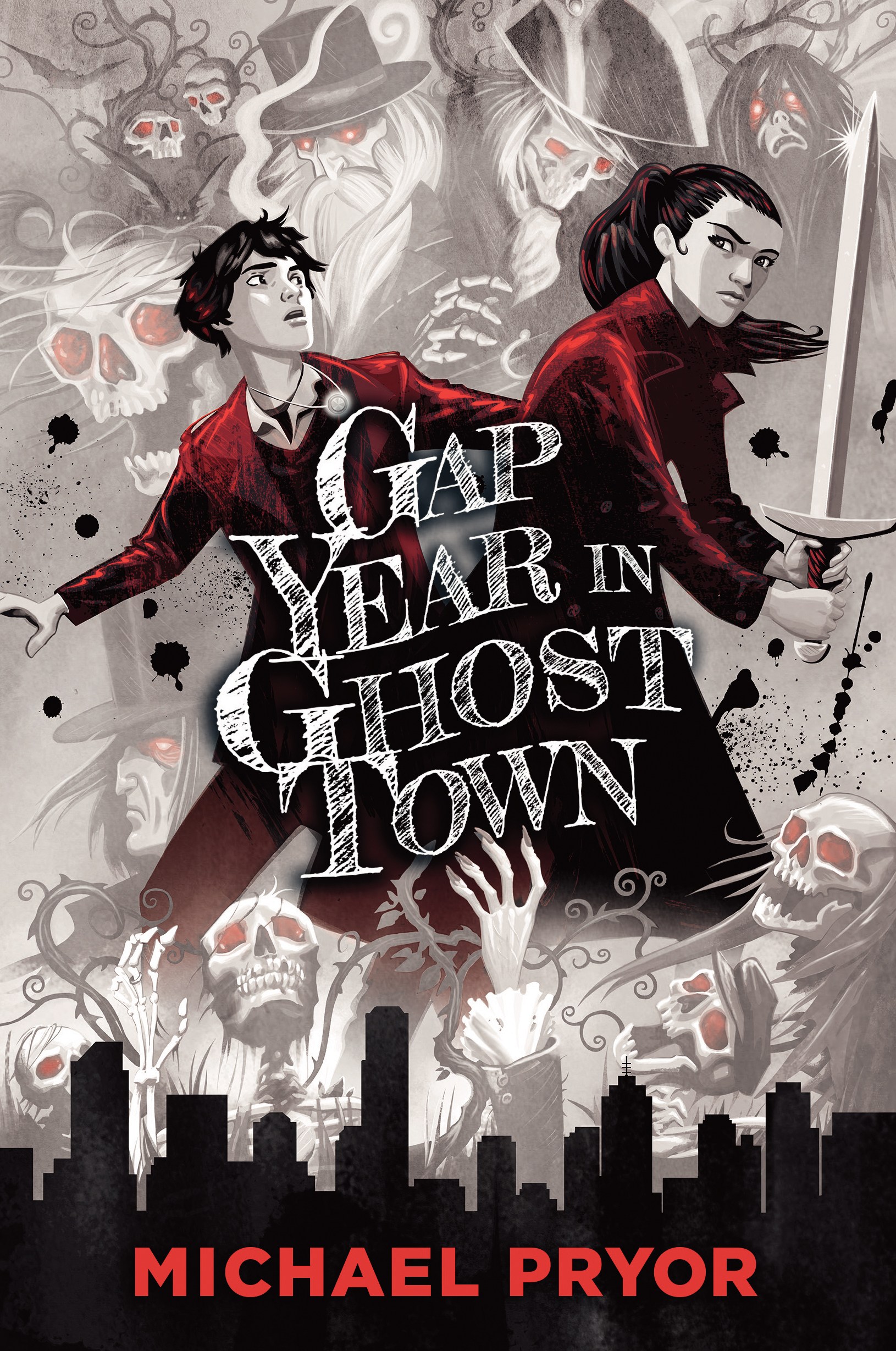Toward the end of 2015 I spent a few impoverished and unedifying months in Paris, working on my first novel, and then struggling to work on my first novel, and then, finally, not working on my first novel – actively and defiantly – which turned out to be a fairly time consuming and emotionally taxing literary endeavour in itself. When I wasn’t doing this, I was usually to be seen handing out CVs to Irish pubs, having those same CVs frowningly returned to me, scouring the boulevards for money and (when things got really bad) for partially smoked cigarettes, and practising what I will sadly have to call “my” French. Whereas every other Irishman in Paris was poised aloofly behind some bar in Montmartre, chatting away with locals as if he’d come straight out of the womb with a copy of Madame Bovary in his tiny hands, all my French seemed to do was make people squint.
Speechlessness, though, sometimes has its uses. On November 13th, almost three months into my stay, I found myself at the edge of a large-scale terrorist attack; indeed, the worst terrorist attack in France since the Second World War. Armed men entered several restaurants and bars around the city, shot as many people as they could, then fled. The Stade de France was bombed. The Bataclan, a concert venue, was the sight of a protracted hostage crisis. 130 people were killed; almost four hundred wounded. By the time I was even aware of what was happening that night most of the city’s trouble zones had been taped off by police in ski-masks, and even in my ignorance I could account for all kinds of ominous details which suggested something awful was in progress: the packs of agitated foreign journalists lancing past me with their tripods and their what-have-yous, the cafés whose shutters were down but whose tables were out on the street, often with half-empty glasses and still-steaming bowls on them, the sight of a huge traffic jam, stretching the length of Boulevard Voltaire, comprised entirely of ambulances.
When I was safely back in Ireland, and in English, I used these spiky details to furnish my account of the night’s atrocities, which is all anyone wanted to hear about, and I got used to a certain kind of reaction to my story; elderly relatives shaking their heads in sorrow; friends peering deep into pints, saying Jesus, So Intense, Fuck. This was very different to the kinds of “conversations” I’d had in Paris, with Parisians, in the days and weeks after what everyone was gravely referring to as les attentats. I remember a kindly old Algerian man who, immediately after we were introduced, asked me how November 13th compared to the situation in Ireland, by which he meant Northern Ireland, with its car bombings and pub bombings and fragile peace negotiations, rather than the boring but reasonably peaceful South. Thinking now just how pathetic, how utterly incoherent my answer must be been (I did not know the French for IRA, so I just said les terroristes; or rather, des terroristes, which means “some terrorists”), thinking how it must have sounded something along the lines of “for me it is interesting because some terrorists are small in Ireland but some terrorists of two weeks ago are big and for me I think it’s bad that they are big”, I can only salute that man. Salute him and thank him for what must have been a heroic effort to avoid laughing (I think only the gravity of the subject prevented him from doing so). Indeed, I think he even nodded, silently, in solemn agreement, as if a Hitchens-level political insight were being transmitted, instead of the display of earnest nonsense that was really taking place. I found out later that the French say IRA, too, but they pronounce it as one smooth word, like the English word “era”, which I thought was quite pretty, actually.

Reading Ben Lerner’s wonderful novel Leaving the Atocha Station brought back this and many other Parisian memories with great force. The book’s hero, if that is the word, is a young American poet named Adam, who is living and studying in Madrid on some sort of artist’s grant (the kind which characters in novels always seem to be getting instead of me). “Studying” is also not quite the word. Nominally Adam is in the city to research a long poem on the literary legacy of the Spanish Civil War, although he knows precisely nothing about the country’s literature or its history or indeed any possible connections they may share. His knowledge of the Spanish language, too, is a little shaky, and his attempts to negotiate his way around this new verbal universe result in some of Lerner’s finest comic passages. Near the beginning, for instance, Adam finds himself sitting at a campfire with some locals he hardly knows, all of whom are speaking and shouting rapidly, with typically Spanish liveliness. One of them, a beguiling madrilena named Isabel, begins to relate an upsetting incident from her past; Adam, despite his best efforts, can’t follow – he doesn’t even know which kind of expression to show. Should he appear disgusted or amused or sad? Anxiously he decides her story is supposed to be funny, and smiles along with it, much to the fury of her sympathisers. As her tragedy reaches its unintelligible zenith, as tears start to fall down her lovely face, he realizes the mistake he’s made. “It took me what felt like a minute to work my face out of the smile,” he says, “a smile they thought was my response to Isabel’s plight.” It’s too late for that, however. One of Isabel’s indignant friends comes charging at him, shouting in Spanish, and hits him in the mouth. Later on, Adam is approached by the tearful storyteller:
“I’m sorry”, she said.
“No, I’m sorry”, I said. “I don’t understand what story you said before to me,” is probably what I said. “My Spanish is very bad. I get nervous.”
“Your Spanish is good,” she said. “How is your face?”
“My face is good,” I said, which made her laugh.
Encouraged, Adam attempts to discover more about this anecdote of hers, apparently so moving it nearly cost him his teeth:
I wanted to know what she had been crying about and I managed to communicate that desire mainly by repeating the words for “fire” and “before.” She paused for a long moment and then began to speak; something about a home, but whether she meant a household or the literal structure, I couldn’t tell; I heard the names of streets and months; a list of things I thought were books or songs; hard times or hard weather, epoch, uncle, change, an analogy involving summer, something about buying and/or crashing a red car.
That “red car” is a great touch – exactly the kind of pointless, childish phrase one manages to rescue from the torrents of foreign speech. In fact, Adam spends a lot of the novel in the basically infantile position of clutching at simple meanings, trying to discern the general shape of whatever conversation he is supposed to be a part of. After the fireside fiasco, at another get-together, with another girl (called Teresa, who, like Isabel, becomes a sort of girlfriend, though the two are comically indistinguishable), he once more stumbles into the game of guess-the-signifier:
She described the death of her father when she was a little girl, or how the death of her father turns her back into a little girl whenever she thinks of it; he had been young when he died but seemed old to her now, or he had been old when he died but in her memories grew younger. She began to quote the clichés peopled had offered her about what time would do, how he was in a better place, or maybe she was just offering these clichés to me without irony…
Adam does not seem troubled by the realm of ambiguity in which he moves; on the contrary he embraces its poetic possibilities. In this new place, his language is suddenly useless, and the dollars in his pocket are useless, too; he steps off the plane and both, in an instant, require conversion (he always overspends in Madrid, mostly because euros don’t seem “real” to him). Though he never has much trouble on the cash front, he does struggle with the temporary loss of his other great inheritance, the English language. Of course, it is never truly lost – Teresa, for one, speaks English – but it does get radically devalued; no matter how exact or luminous his words might have been back home, no matter how much attention they received from journals and fellowships, here in Spain they are just units of gibberish, pure American noise. To carry the admittedly feeble language-as-currency metaphor a little further, one might call this novel a rags-to-riches story, in which the rags are Adam’s initial, book-learned fragments of speech, and the riches are those secrets and pleasures which can only be delivered by real fluency – and by poetry, which is just fluency on shining masts.
Adam never quite attains that measure of verbal wealth, but his attempts to do so are compelling and very funny. Equally funny are his dreams of what things might be like with a whole second language sitting unstably inside his brain. He entertains Menard-like fantasies about developing his grammar with the help of Cervantes instead of the standard issue textbooks, how elegant and unusual “a Spanish thus learned” would be, “how its archaic flavor and formally heightened rhetoric would collide with the mundanities of daily life, giving the impression less of someone from a foreign country than someone from a foreign time.” (I pause to register another cringe of recognition: I too indulged in similar delusions in Paris, envisioning myself speaking a French that somehow combined the cool, glamorous reticence of Camus with the visionary lyric smoke-clouds of Baudelaire – this while I was still struggling to pronounce the name of my own neighbourhood). Elsewhere, he attends to the more commonplace duties of actually reading the great works of Iberian literature, even the ones that aren’t Don Quixote. He decides he prefers Spanish poetry to Spanish prose because his failure to understand the former is more interesting to him than his failure to understand the latter; it takes on the complicated aura of literary alienation rather than the bland fog of linguistic incompetence. “My inability to grasp or be grasped by the poem in Spanish so resembled my inability to grasp or be grasped by the poem in English that I felt, in this respect, like a native speaker.” This is a typical formulation, illogical, paradoxical, absurd, yet weirdly perfect.
Certain aspects of the novel’s structure seem to me quietly original, modestly experimental. One of these is the inclusion of photographs. WG Sebald, of course, was the great pioneer of this technique in its contemporary application; in that writer’s uncategorizable books, the pictures worked as atmospheric punctuation marks or breathing spaces, careful diversions from the text that didn’t always correspond to what was being described but nonetheless felt necessary. Reading Austerlitz or The Emigrants without paying attention to the photographs would be as diminished an experience as reading Infinite Jest without regularly bouncing over to the endnotes. Not so in Lerner’s novel. Here, the pictures (and their semi-parodic captions) exist to undermine the text – or at least to poke fun at the narrator and his more grandiose pronouncements. They could easily be detached without much or any damage to the story, and yet I found myself delighted whenever one appeared. The most diverting of these awkward visual intervals shows Franco in mid-speech, his face concealed by a pulpit, above the cryptic words: “The proper names of leaders are distractions from concrete economic modes.” What on earth this could mean in the story’s context is left nicely unresolved. Another charmingly unusual element of the book is Adam’s playfulness with time. Instead of tormenting us with dates, months, seasons, he elects to divide his sojourn into what he calls “phases” (phases of what he calls his “project”). The idea that Adam’s life in Madrid, a series of parties and sleep-ins and drug-fuelled perambulations and sullen poetry readings, might in any way constitute a project is quite ridiculous and quite hilarious – but his notion of “phases”, the allocation of his floating days and weeks into distinct units marked by something like progress gives the book a neat shape it would otherwise lack, and a sense of forward momentum. The first phase, which is the loneliest, involves a lot of espresso-drinking and afternoons spent in the Prado, while the third phase seems to occur mostly in bed. The others are principally concerned with relationships – phases of connection, human phases.
A few years ago, I tried to read Lerner’s novel 10:04, which immediately followed this one and, like this one, received near-unanimous applause in the States. I didn’t get through it. There were too many scenes where the hipster protagonist humourlessly makes quinoa in his Manhattan flat, or goes to his hipster friend’s Manhattan flat and makes some more humourless quinoa there. Thankfully there is no quinoa in Leaving the Atocha Station, but there are perhaps a few too many descriptions of meal-preparation, and a few too many scenes where characters smoke and discuss poetry, or smoke and go to arthouse films, or smoke and decide to try a new restaurant (in my time in Paris, I would have loved to have had the finances to just casually “try” a new restaurant) – the kind of privileged aimlessness which feels less like Hemingway and more like Jay McInerney (or like Woody Allen at his most mannered). Lerner, however, seems acutely aware of this danger, i.e. that his book might easily stiffen into an egoist’s lament, a rich boy’s rant, a self-pitying account of what is essentially a long, free holiday for someone who doesn’t deserve one. But he gets both his hero and his book across the line. True, Adam is one of those hash-smoking poets who has read his Benjamin and likes to philosophise about the tension between the reproduction and the real, and who regularly insists that “poetry isn’t about anything”, and who says things like “blue is an idea of distance” – in other words, he is doomed to nauseate. But, as a type, he also comes from a long line of bookish buffoons, from Bertie Wooster to William Boot to Lucky Jim, to Philip Roth’s rambling Jews, to the sulky non-fiction personas of Geoff Dyer and David Foster Wallace. At the confluence of his loftiness and frivolity lies a deep, and deeply funny, streak of irrationality. His true fictional spirit-animal may be the soulful madman who narrates Knut Hamsun’s Hunger. He is constantly referring to writers whose books he has never read, adopting opinions he doesn’t really believe, and passing off the experiences of others as his own. He can also, like all writers, be a bit of a philistine. Visiting Spain’s most famous architectural wonder, the Sagrada Familia in Barcelona, he can only report that “it was the ugliest building I had ever seen.” Eating locally-renowned fried squid in Granada, he notices that the food looks “alien, arachnoid, repulsive”. Over and over, he shows an almost pathological need to lie; for no good reason he tells Teresa (girlfriend number one) that his mother has just died, and then later, feeling guilty, and hoping “maybe to deepen my guilt into a kind of penance”, he repeats the lie to Isabel (girlfriend number two). When he finally confesses that his mother is very much alive, he is silently outraged that she doesn’t believe him – a moment of psychological farce that touches on the Dostoevskian. And all these scraps and splinters of truth-telling and lying and misspeaking and pretending are elegantly connected in the novel’s last act, wherein Adam is thrown up against history (or History, with a big h, as he likes to put it) in the form of the March 11 attacks in Madrid.
Already politics have played a small part in the book. It is 2004, and the invasion of Iraq is in awful progress, known to Adam only through online newspapers and blogs (every day, he observes, turns out to have been “the deadliest day since the invasion began”). He sometimes finds himself playing the part of ambassador for what the Spaniards call “the United States of Bush,” though he never really has anything thoughtful to say on that count. At another point, he is asked why he has chosen to go to Spain instead of “for example, Chile.” “So much has been written about Allende,” is his evasive reply, even though he privately admits, “I had only the vaguest sense of who Allende was.” The night before the bombings in Madrid, he spends a fortune of his parent’s money, first on a necklace for Isabel (which he forgets to give to her), then at a five-star restaurant (where he orders the most expensive Spanish wine (before vomiting it back out)) and, later, at a five-star hotel (which he is too drunk to even appreciate, and which is a five-minute walk from his flat). This sequence of reckless spending is even more brilliantly unbearable than Gordon Comstock’s night of drinks and tarts in Keep the Aspidistra Flying, and the hangover is even worse. Adam wakes up, sick and washed out by shame, and steps onto the balcony of his opulent hotel room. Madrid is a city of sirens. Helicopters fill the sky. He runs downstairs and outside and discovers that the Atocha train station has been bombed; hundreds are dead. His project has entered its “fourth phase.”
In an interview with The Believer magazine, Lerner said “I was really moved and marked by that scene in Stendhal’s novel The Charterhouse of Parma where Fabrice wanders around wondering if he’s really fought in a battle, if he’s really been in Waterloo, if he’s really part of history.” On a less grand scale, Adam finds himself in a similarly uncertain position, as the TVs fill with sensational images of his provisional city, wounded and scared and confused, and as the growing sense of political scandal threatens to bully his indifference into something more solid. Lerner’s descriptions of the concerned messages flowing in, the breathless phone-calls home, the blend of excitement and fear that accompanies Adam as he watches the skies and the Metro stations for signs of further trouble, the sudden appearance of journalists and soldiers on every street and square, the eerie feeling that grows when he notices everyone is having exactly the same conversation and all the news channels look identical – all of this, again, chimed with my own memories of a comparably awful event.
At this point, a more conventional novelist might have Adam experience some kind of epiphany, a sudden realization that he really does have a purpose after all; “the time had come for me to take part, to chip in, to give it my everything” – that kind of shit. Lerner is too clever, and maybe too weird for such a manoeuvre. If anything, this unexpected incursion of the political into the personal only exaggerates Adam’s apathy. As his intellectual friends’ shared indignation grows ever more ecstatic, he retreats further and further into his own trivial self. There is a finely handled ambivalence at play in these pages, between the poet’s ironic carelessness on the one hand, and the somehow innocent fury of the Spanish protestors on the other. Recall Adam’s urge to be “less someone from a foreign country than someone from a foreign time.” Nervously riding this wave of Sixties-style political enthusiasm, Adam suddenly looks like an envoy from an atomized future, the post-collective, post-crowd twenty-first century. What we know to be self-interest begins to look like a calm and dignified disinterest in the kind of sign-waving that is suddenly everywhere. One of the funniest scenes involves Adam’s extremely hesitant involvement in just such an anti-government protest. (In typical fashion, he is only there to spend some time with Teresa.) Standing at the edge of a noisy multitude, he tries to figure out what precisely his fellow protestors are chanting, and when he does, he mouths along silently to the words – not entirely sure what they mean. Then, someone appears beside him, a detestably handsome man named Carlos, whom Adam suspects of being Teresa’s secret lover:
Without warning and with improbable volume, Carlos started a chant about Rajoy. He was bellowing, and yet he seemed completely calm. At first he was the only one chanting his chant and I hoped nobody would pick it up, that he would have to abandon it, embarrassed. But then the other people who were near the crowd but not part of it joined Carlos in chanting. And once the people who were near the crowd were linked by the chant, they moved and we moved with them into the crowd and were absorbed. Then Carlos’s chant spread from our part of the crowd and grew deafening. Carlos’s voice was no longer distinct and I looked at him handsome face and hated it.
“Poetry isn’t about anything.” This is Adam’s favourite line: it might be a deeply held belief or a repeated joke. Maybe it doesn’t matter. Yet the phrase reminds the reader, as I’m sure it was meant to, of Auden’s famous statement, “Poetry makes nothing happen.” This novel, especially in its raucous last act, can be read as a response to Auden’s assertion, one which treats the word nothing as if it had an actual referent, as if it were a findable, tangible object of desire, a thing in the world. Lerner’s project and Adam’s “project” might hereby unite, in a joint longing to catch and assess this very nothingness, to lay hold of what is beautifully and memorably called “the texture of et cetera itself.” Leaving the Atocha Station is an exceptional debut from a very gifted writer, and it is lushly coated in just such a texture, whatever that is. I’ll finish with one more delicate stroke of it:
In the last phase of my research fireflies were disappearing. Bats were flying around confused in the middle of the day, colliding with each other, falling into little heaps. Bees were disappearing, maybe because of cell phone radiation, maybe because of perfume, maybe because of candy. It was the deadliest day since the invasion began.
Share this:





